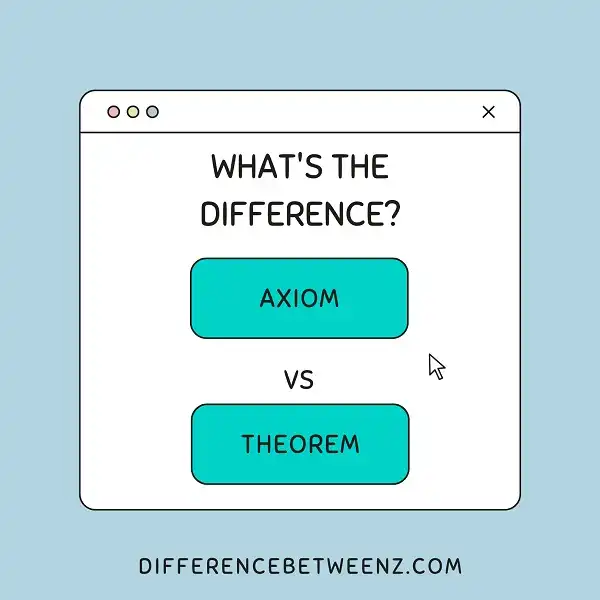Axiom vs. Theorem
What is Difference between Axiom and Theorem? The terms “axiom” and “theorem” are often used in fields of study such as mathematics, physics and logic. Both have a certain relationship, but it is important to understand that they are not synonymous words; therefore, do not describe the same.
Difference between Axiom and Theorem
To clarify a bit the confusion you may have about this topic, here’s what the difference between axiom and theorem is.
Axiom
An axiom is an assertion that is accepted as true without the need for it to be proved. It requires no proof and is universally accepted, since its non-acceptance would contradict all logic.
Axioms have no contradiction and are obvious to anyone without the need for any in-depth analysis of things. Some examples of axioms are as follows:
- The whole is greater than any of its parts.
- A proposition cannot be true and false at the same time.
- Two straight lines cannot enclose a space.
Theorem
On the other hand, theorems are theoretical proposals that require a check. Unlike axioms, they are not automatically accepted but are subjected to tests from which the results that support the theory are extracted.
Theorems are made up of two parts: hypotheses and conclusions. Among the examples of theorems, one of the best known is the Pythagorean Theorem.


